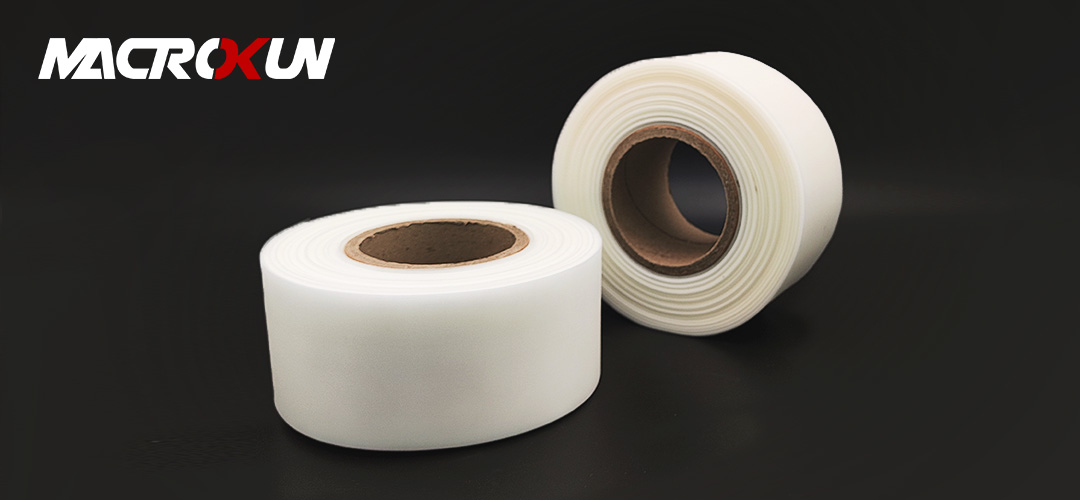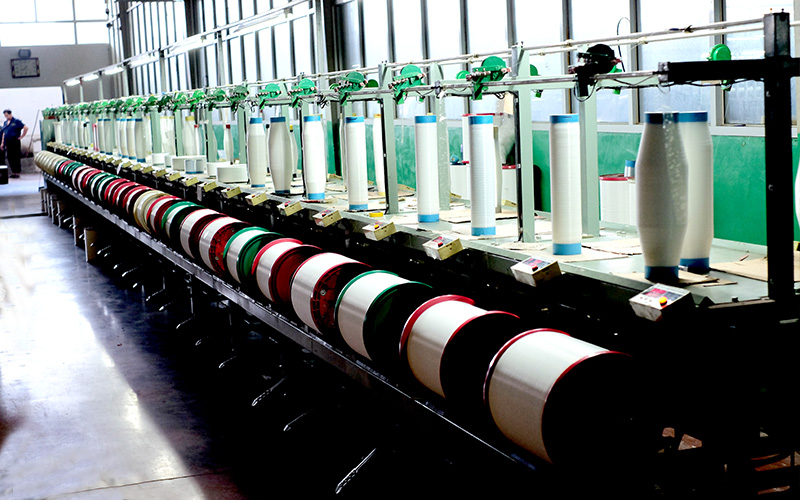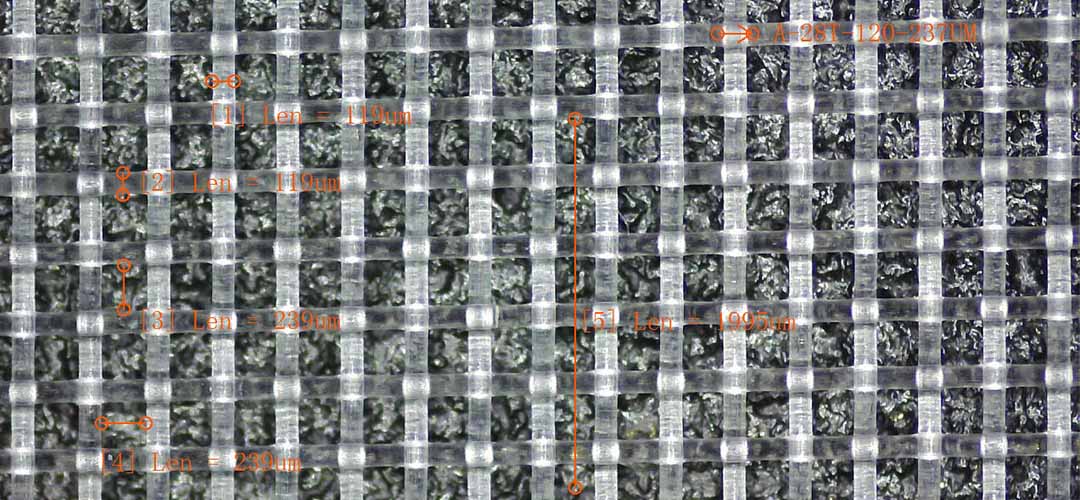Table of Contents
Applications of micron nylon mesh in Water Filtration Systems
Micron nylon mesh has emerged as a pivotal component in water filtration systems, offering a range of applications that enhance the efficiency and effectiveness of water purification processes. As industries increasingly prioritize sustainability and environmental responsibility, the demand for advanced filtration solutions has surged. Micron nylon mesh, with its unique properties, stands out as a reliable choice for various water filtration applications, ensuring that contaminants are effectively removed while maintaining optimal flow rates.
One of the primary applications of micron nylon mesh is in municipal water treatment facilities. These facilities are tasked with providing clean and safe drinking water to communities, and the use of micron nylon mesh filters plays a crucial role in this process. The mesh is designed to capture particulate matter, including sediments, algae, and other impurities, thereby preventing them from entering the distribution system. By employing micron nylon mesh, municipalities can significantly reduce the risk of waterborne diseases and ensure compliance with health regulations, ultimately safeguarding public health.
In addition to municipal applications, micron nylon mesh is also widely utilized in industrial water filtration systems. Industries such as food and beverage, pharmaceuticals, and chemical manufacturing require high-quality water for their processes. The presence of contaminants can compromise product quality and safety, making effective filtration essential. Micron nylon mesh filters are capable of removing fine particles and microorganisms, ensuring that the water used in production meets stringent quality standards. This not only enhances product integrity but also minimizes the risk of costly recalls and regulatory penalties.
Moreover, micron nylon mesh is increasingly being adopted in wastewater treatment applications. As industries strive to minimize their environmental impact, the need for effective wastewater management has become paramount. Micron nylon mesh filters are employed to separate solids from liquids, facilitating the treatment process and enabling the recycling of water. By utilizing these filters, industries can reduce their water consumption and discharge cleaner effluents, contributing to a more sustainable approach to water management.
Another significant application of micron nylon mesh is in aquaculture and fish farming. The health of aquatic life is heavily dependent on water quality, and micron nylon mesh filters are instrumental in maintaining optimal conditions. These filters help to remove organic debris, uneaten feed, and harmful pathogens from the water, promoting a healthier environment for fish and other aquatic organisms. As the demand for sustainable seafood continues to rise, the role of micron nylon mesh in aquaculture becomes increasingly vital, ensuring that fish farms can operate efficiently while adhering to environmental standards.
Furthermore, the versatility of micron nylon mesh allows for customization in various filtration systems. Different mesh sizes can be selected based on specific filtration needs, enabling industries to tailor their filtration solutions to meet unique requirements. This adaptability not only enhances the performance of filtration systems but also allows for cost-effective solutions that can be scaled according to operational demands.


In conclusion, the applications of micron nylon mesh in water filtration systems are diverse and impactful. From municipal water treatment to industrial processes, wastewater management, and aquaculture, the benefits of using micron nylon mesh are evident. As industries continue to seek innovative solutions for water purification, the role of micron nylon mesh will undoubtedly expand, reinforcing its position as a critical component in the quest for cleaner, safer water. By investing in advanced filtration technologies, businesses can not only improve their operational efficiency but also contribute to a more sustainable future.
Benefits of Using Micron Nylon Mesh for Air Filtration in Industrial Settings
In the realm of industrial air filtration, the choice of materials plays a pivotal role in determining the efficiency and effectiveness of filtering systems. Among the various options available, micron nylon mesh has emerged as a preferred choice for many industries due to its unique properties and advantages. One of the primary benefits of using micron nylon mesh in air filtration systems is its exceptional filtration capability. With a range of micron ratings available, this mesh can effectively capture particles of varying sizes, from larger dust and debris to finer pollutants. This versatility ensures that the air quality in industrial settings remains high, which is crucial for both employee health and equipment longevity.
Moreover, the durability of micron nylon mesh cannot be overstated. Unlike traditional filter materials that may degrade or become clogged over time, nylon mesh is resistant to wear and tear, making it a cost-effective solution in the long run. Its ability to withstand harsh environmental conditions, including exposure to chemicals and extreme temperatures, further enhances its appeal. As a result, industries that require reliable and long-lasting filtration solutions, such as manufacturing, pharmaceuticals, and food processing, find micron nylon mesh to be an ideal choice.
In addition to its durability, micron nylon mesh is also lightweight and easy to handle. This characteristic simplifies the installation and maintenance processes, allowing for quicker replacements and less downtime in industrial operations. The ease of cleaning and reusing nylon mesh filters also contributes to their cost-effectiveness, as businesses can reduce waste and lower their overall operational expenses. Furthermore, the mesh can be designed in various configurations, such as pleated or flat, to suit specific filtration needs, providing flexibility that is often necessary in dynamic industrial environments.
Another significant advantage of micron nylon mesh is its ability to maintain airflow while effectively filtering out contaminants. This balance is crucial in industrial settings where maintaining optimal air circulation is essential for both operational efficiency and worker comfort. By utilizing micron nylon mesh, companies can ensure that their air filtration systems do not impede airflow, thereby enhancing the overall performance of their ventilation systems. This feature is particularly beneficial in environments where high volumes of air need to be processed, as it minimizes the risk of pressure drops that can lead to inefficiencies.
Furthermore, the environmental impact of using micron nylon mesh is worth noting. As industries increasingly focus on sustainability, the longevity and reusability of nylon mesh filters align with eco-friendly practices. By reducing the frequency of filter replacements and minimizing waste, businesses can contribute to a more sustainable future while also adhering to regulatory standards regarding air quality and emissions.
In conclusion, the benefits of using micron nylon mesh for air filtration in industrial settings are manifold. From its superior filtration capabilities and durability to its lightweight nature and environmental advantages, this material stands out as a reliable choice for businesses seeking to enhance their air quality management systems. As industries continue to evolve and face new challenges, the adoption of advanced filtration solutions like micron nylon mesh will undoubtedly play a crucial role in ensuring operational efficiency, compliance with health standards, and the overall well-being of employees. By investing in such innovative materials, companies can not only improve their air filtration processes but also position themselves as leaders in responsible and sustainable industrial practices.
Innovations in Micron Nylon Mesh Technology for Chemical Processing Filtration
In the realm of chemical processing, the demand for efficient and reliable filtration systems has never been more critical. As industries strive to enhance productivity while ensuring compliance with stringent environmental regulations, innovations in micron nylon mesh technology have emerged as a game-changer. This advanced material offers a unique combination of durability, flexibility, and precision, making it an ideal choice for various filtration applications within the chemical sector.
One of the most significant advancements in micron nylon mesh technology is its ability to provide superior filtration performance. Traditional filtration materials often struggle to maintain their integrity under harsh chemical conditions, leading to premature failure and increased operational costs. However, micron nylon mesh is engineered to withstand a wide range of chemical exposures, ensuring longevity and reliability. This resilience not only reduces the frequency of replacements but also minimizes downtime, allowing chemical processing facilities to operate more efficiently.
Moreover, the versatility of micron nylon mesh allows for customization in terms of mesh size and configuration. This adaptability is particularly beneficial in chemical processing, where the specific requirements for filtration can vary significantly depending on the substances being processed. By tailoring the mesh specifications to meet the unique needs of each application, manufacturers can achieve optimal filtration efficiency. This level of customization is crucial in industries such as pharmaceuticals, where even the slightest contamination can compromise product quality and safety.

In addition to its robust performance characteristics, micron nylon mesh technology has also seen advancements in its manufacturing processes. Innovations such as advanced weaving techniques and enhanced polymer formulations have resulted in mesh products that not only perform better but are also more cost-effective. These improvements have made it possible for chemical processing companies to adopt micron nylon mesh solutions without incurring prohibitive costs, thereby facilitating broader adoption across various sectors.
Furthermore, the environmental impact of filtration systems is an increasingly important consideration for chemical processing industries. Micron nylon mesh is often more sustainable than traditional filtration materials, as it can be produced with less energy and can be recycled at the end of its life cycle. This aligns with the growing emphasis on sustainability within the chemical sector, where companies are actively seeking ways to reduce their ecological footprint. By integrating micron nylon mesh into their filtration systems, organizations can not only enhance their operational efficiency but also contribute to a more sustainable future.
As the chemical processing industry continues to evolve, the role of micron nylon mesh technology in filtration systems is poised to expand further. Ongoing research and development efforts are likely to yield even more innovative solutions, enhancing the performance and applicability of this material. For instance, the integration of smart technologies, such as sensors that monitor filtration efficiency in real-time, could revolutionize how filtration systems are managed and maintained.
In conclusion, the innovations in micron nylon mesh technology for chemical processing filtration represent a significant leap forward in the quest for efficiency, reliability, and sustainability. As industries increasingly recognize the benefits of this advanced material, it is clear that micron nylon mesh will play a pivotal role in shaping the future of filtration systems. By embracing these advancements, chemical processing companies can not only improve their operational performance but also position themselves as leaders in an increasingly competitive and environmentally conscious marketplace.






